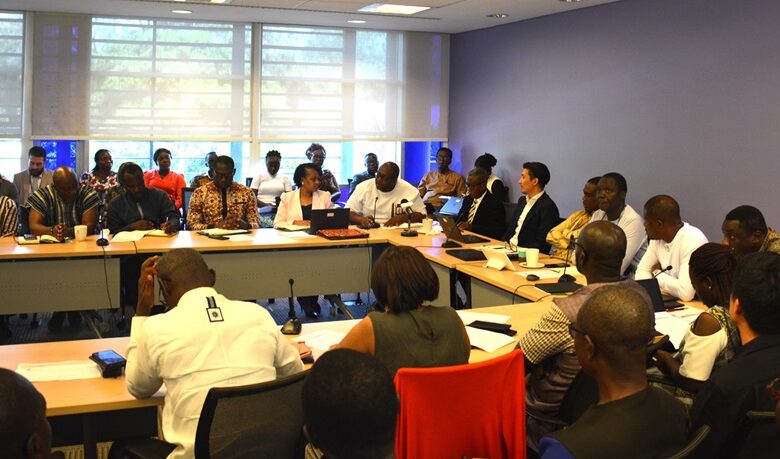World Bank reaffirms commitment to strengthening public financial management in Ghana

The World Bank has reaffirmed its unwavering commitment to strengthening Public Financial Management (PFM) for efficient management of public finances in Ghana.
World Bank Regional Director, Economic, Finance, and Institutions, Western and Central Africa region, Abebe Adugna stated that, “at the World Bank, we see strengthening of Public Financial Management as a key step in enhancing accountability and transparency in the use of public resources.”
“This is why the Bank continues to partner with the government of Ghana to support PFM reforms including improvements in revenue mobilization; performance of State-Owned Enterprises and strengthening of fiscal management generally,” Adugna maintained, at the Roundtable on PFM reforms held in Accra, aimed at addressing transparency and accountability gaps in Ghana
He pointed out that enhancing accountability in the use of public resources required a robust institutional framework, enforcement of those provisions, and transparency in all undertakings.
According to him, Ghana had the capacity to be a leader in championing transparency and accountability in public financial management. He was however of the view that “the management of public affairs also requires the active participation of non-state actors such as yourselves. Ghana boasts a strong civil society which has remained a partner of the World Bank in many of our engagements in the country.”
Over the years, World Bank support to Ghana has included a wide range of projects to help strengthen public financial managementat the local and national levels, the latest being the US$150million Public Financial Management for Service Delivery Programme.
The World Bank’s goal of ending extreme poverty and boosting shared prosperity on a livable planet was linked with Ghana’s development priorities.
World Bank Operations Manager for Ghana, Liberia, and Sierra Leone Michelle Keane stressed the linkage between poverty reduction and effective management of public finances.
“We cannot achieve the goal of ending poverty without prudent use of the scarce public resources. Effective public financial management, transparency, and accountability are at the core of our development agenda,” she added.
Better public financial management creates the enabling environment for timely and accurate financial information and strengthened oversight which in turn improves the trust of citizens in their government.
Improved management of finances can create the fiscal space for investments in human capital and infrastructure necessary for transformation to happen.
The roundtable highlighted opportunities for collaboration among stakeholders and provided insights into avenues to support the implementation of ongoing reforms, including those envisaged in the Public Financial Management for Service Delivery Program and the Public Financial Management Strategy which it supports.
Director of Research at the Institute of Economic Affairs (IEA), Dr John Kwakye touched on the need for efficiency and accountability in Ghana’s management of public finances, saying “we need to look at the PFM Act; there is a sanctions regime but the problem on our hands is who to enforce the regime.”
Dr Kwakye was interested in knowing to what extent the World Bank PFM programme was synchronized with other development partner sponsored programmes, “so that we can avoid the usual disharmony when we are receiving technical support from various sources.”




